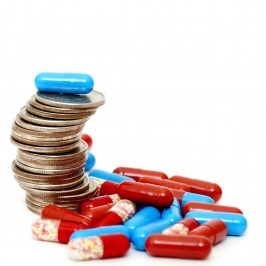What would you prefer – cheap drugs or new drugs?
Whilst the answer would to a certain extent depend on your personal situation, it’s one of the challenges currently facing the pharmaceutical industry.

The major pharmaceutical companies all have significant research and development (R&D) expenses. It’s been estimated that to get a new medicine onto the market from scratch it costs over £1 billion on average.
That’s a lot of R&D and importantly for the drugs companies, it’s a lot of expenses that need to be recovered.
So how do they recover their R&D expenses?
Well, their hope is that they have various “blockbuster drugs” that will treat or cure some of the more common medical problems and will generate significant amounts of revenue.
The challenge for these drug companies though is that if they spend a significant amount on R&D to discover a drug which is going to enable them to recover these R&D expenses (plus generate a profit), they will be a bit disappointed if other drug companies develop cheap versions of these drugs once they’ve been discovered.
In other words, these other companies won’t have the significant R&D expenses and instead will just copy the newly discovered drugs and get the revenue in.
The pharmaceutical industry tries to get around this problem by providing a 10 to 15 year “patent period” after discovery of the drug whereby other companies cannot copy it.
The giant pharmaceutical company Pfizer has a blockbuster drug called Lipitor (it helps reduce cholesterol) and this is about to come out of its patented protection. The drug was first invented in the 1980s and since then it has reportedly generated more than $125 billion of revenue for Pfizer.
Whilst this has been an extremely successful drug for Pfizer (it accounted for 15% of their revenue last year) things are going to change dramatically in the near future.
As soon as the patent protection period ends next week for the drug, other drug companies will make cheap (but still effective) copies of the drug and it is estimated that the price will fall by 85%.
This in itself highlights an interesting ethical discussion surrounding pharmaceutical companies.
Namely, should they be able to enjoy the benefit of a patent protection to enable them to keep prices high so that they can put money back into R&D or are they making significant profits by pricing the drugs out of the reach of a lot of people around the world?







